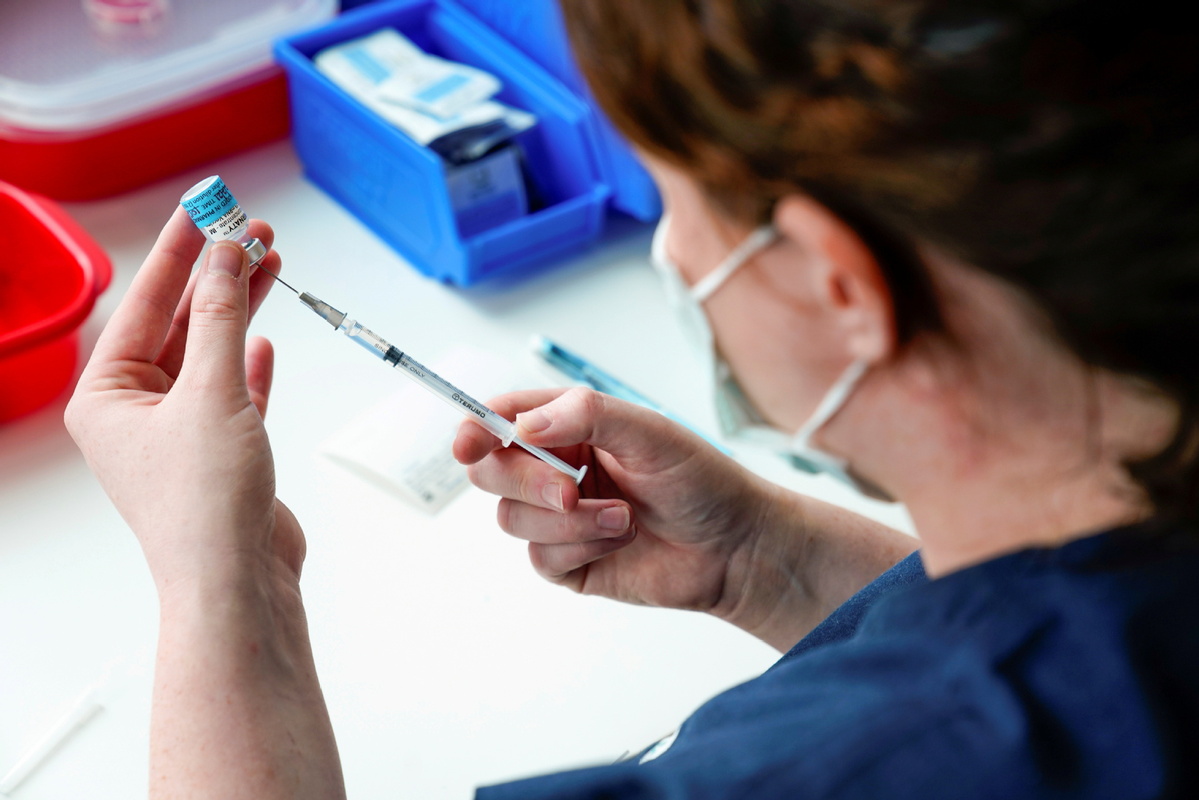Australia scrambles amid COVID spike with Delta strain and questions mount over slow vaccinations


Australia, once hailed as a success story last year in COVID-19 containment, is finding its gains at the risk of falling apart due to a new spike.
The country escaped the worst of the pandemic due to efficient measures to prevent the spread of the novel coronavirus. But in the past few weeks, there has been a fresh spate of infections, and that, too, involving the highly contagious Delta variant of the virus, prompting alarm across the country.
With state borders again closed, major cities under lockdown and millions of people under stay-at-home orders amid dozens of new cases a day recently, the country sees less than 5percent of the population fully vaccinated. Many people are starting to ask: what went wrong?
Prime Minister Scott Morrison, who faces an election within the next 12 months, is facing questions over the slow pace of the mass vaccinations, with opposition political figures and some independent experts saying his handling of the rollout has been less than spectacular.
Labor opposition leader Anthony Albanese best summed up the situation recently when he said: "At the start of the year the prime minister had just two things to do — vaccinate the population and to make sure we had quarantine facilities up and running for returning travellers. In both he has failed miserably."
In New South Wales, the worst affected state in Australia's latest COVID outbreak, the case tally has climbed to nearly 200 since the first infection was reported on June 16, involving a limousine driver who transported overseas airline crew. And the virus spread to other regions, with several cases reported from various places.
Since Australia began its vaccination program on Feb 22, it has been plagued with shortages of vaccines, mismanagement, muddled vaccination messaging, as well as reluctance of many people to take AstraZeneca jabs.
Despite all the vaccination hype at the end of 2020, the rollout has fallen far short of expectations and well behind most developed countries in getting its people immunised. And any hope of having most of the population fully vaccinated by October has been dashed.
With supply shortages has come a 'blame game' between the federal government and the states, especially now as the deadly Delta variant of the coronavirus has taken hold in many states, forcing lockdowns.
In New South Wales, the worst affected state in Australia's latest COVID outbreak, the case tally has climbed to nearly 200 since the first infection was reported on June 16, involving a limousine driver who transported overseas airline crew. And the virus spread to other regions, with several cases reported from various places.
Terry Nolan, head of Vaccine and Immunisation Research Group at the Melbourne-based Doherty Institute, said recently that the slow pace of the rollout risked damaging public confidence.
Speaking on the Australian Broadcasting Corporation's Four Corners television program, he said: "If we look like we're slow, if we look like we are taking our time, if we look like we don't really know how well we are doing against our performance expectations … would that fill me with confidence as a citizen? Absolutely not."
Hassan Vally, an epidemiologist and senior lecturer at La Trobe University in Melbourne, says it is easy in hindsight to criticize.
"The government started well enough," he said. "It ordered two or three times more vaccines than was needed. But then we had the Queensland University/CSL vaccine failure in December last year, Pfizer cutting the number of doses to Australia and the AstraZeneca blood clotting issue.
In December last year, the University of Queensland and biotech company CSL announced that were abandoning joint clinical trials of a COVID-19 vaccine as trial participants returned false positive HIV test results.
As for AstraZeneca, Vally was referring to reports that emerged earlier this year of some recipients of the firm's vaccines developing a blood-clotting disorder.
"All these factors just played into an already exceedingly difficult situation. Today, if all things were equal, we should be up where the UK is in terms of fully vaccinated people," said Vally."Our way out of this now is to get more people vaccinated."
Analysts noted that Australia bet on several vaccine options but not all the bets paid off. The government is now waging a campaign aimed at addressing vaccine hesitancy among the public and boosting inoculations.
Prime Minister Morrison announced on June 28 that AstraZeneca jabs can now be requested by anyone under age 40 in a major change to the vaccine program.
The announcement saw a quick rebuke from the Australian Medical Association which said: "The advice from the independent Australian Technical Advisory Group on Immunisation that Pfizer is the preferred vaccine for under-60s due to an increased risk of rare clotting events linked to the AstraZeneca jab is unchanged".
Queensland Premier Annastacia Palaszczuk and West Australia Premier Mark McGowan have both spoken out against advice issued by Morrison, saying they do not believe the under-40s should be given the AstraZeneca vaccine.
Cassandra Berry, a professor in viral immunology at Murdoch University, Perth, said: "The risk of an adverse side effect of blood clotting is about 100-times higher with COVID-19 than the normal population not exposed to the virus."
With a small group of Australians fully vaccinated "we are in a precarious position", she said. "The highly transmissible Delta variant (poses) a greater danger than ever before during the pandemic."

































